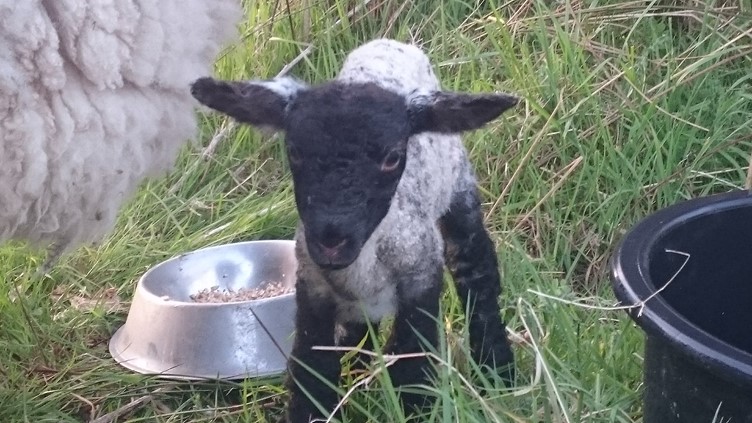Sadbh’s (pronounced Sive) arrival at Eden was unexpected and unplanned. Her presence is nonetheless welcome. Every resident arrives to teach us something about the minds and lives of other animals. Already Sadbh is proving a remarkable teacher. Here is her story:
For more than a year Eden has been subject to visits from neglected dogs. They were lovely dogs, half Labrador half Rottweiler. Regardless, dogs cannot be welcomed on a sanctuary that is also home to sheep and birds. With the help of a local rescue, homes were found for the dogs in the UK. However, their guardian refused to consent to let more than one dog go. The remaining three dogs kept returning, to Eden and to farms in the vicinity. Eventually they chased and killed so many lambs and sheep that they were shot by local farmers. This tragedy is entirely attributable to the negligence of the dog’s guardian.
On three occasions at Christmas & New Year last year they chased sheep through the fields to Eden. In their terror the sheep broke fences and took refuge here. Thankfully the residents at Eden are never left unsupervised so no harm was inflicted on the residents here. However, on one of those occasions Willow became pregnant. Her pregnancy was only discovered a few weeks ago.
Eden has a no-breeding policy, retaining resources for rescue rather than bringing new lives into the world. In this instance nothing can be done. This week Willow gave birth to two beautiful babies. Her son died within minutes of his birth despite our desperate attempts to resuscitate him. Sadbh, her firstborn, and by far the smaller of the two, lived.
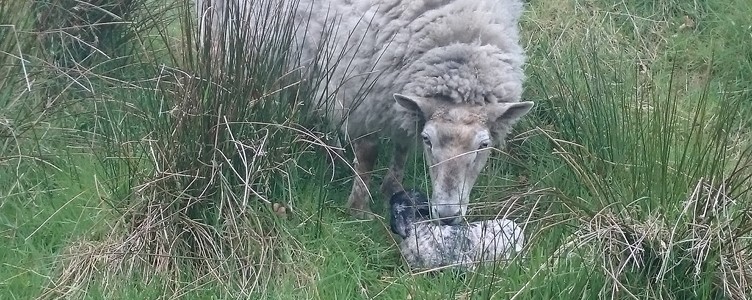
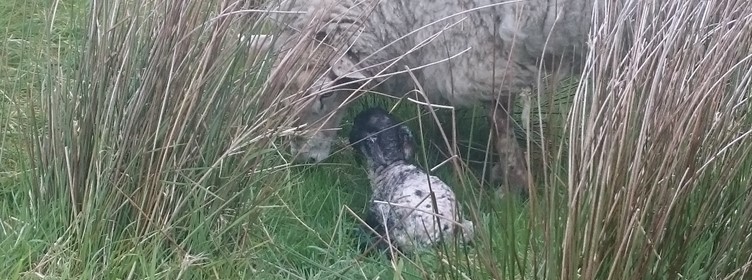
Figure 1 Sadbh’s birth
Willow’s colleagues at Eden stayed close by as she gave birth, obviously aware of what was unfolding.

Figure 2 Cara Pip Lily & Florence
Sadbh’s life gives us the opportunity to witness those precious moments after birth that are shared by mothers and their infants regardless of species. This is the sacred bond that we desecrate when we are not vegan.
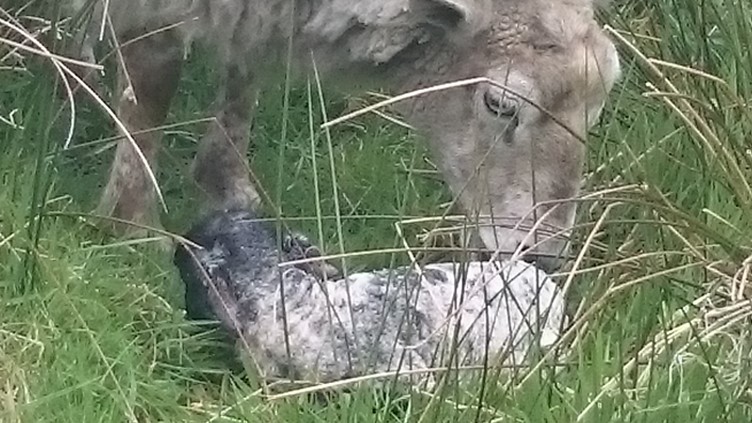
Figure 3 The moments after birth
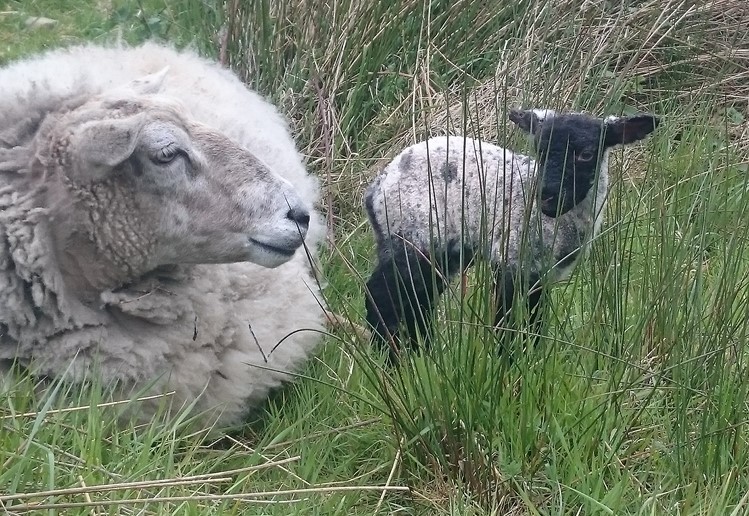
Figure 4 Willow & Sadbh getting to know each other in the hour following birth
Willow is an excellent mother. She has a voice that I have never heard before that she only uses when communicating with Sadbh. From the hour of her birth she has kept a watchful eye, tenderly nudging her to encourage her to drink her milk, and staying by her side at all times.

Below is the nest she made for Sadbh on the day of her birth, deep in a furze bush which allowed her to stay outside eating grass knowing that Sadbh was cosy and safe beside her.
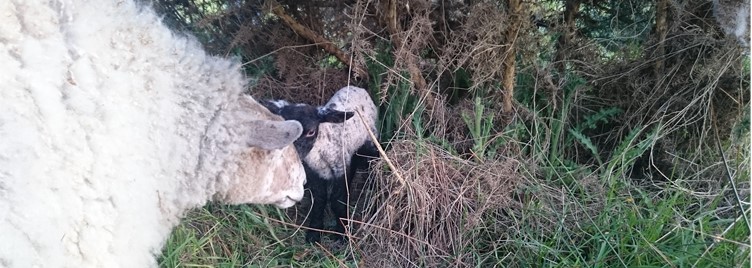
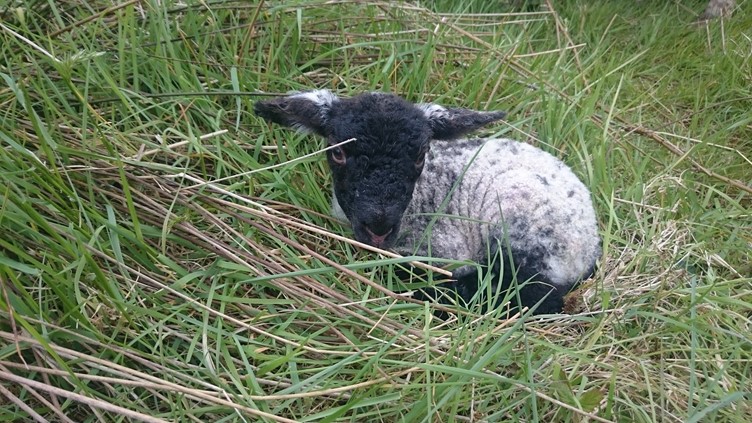
Figure 5 Her first hour on earth
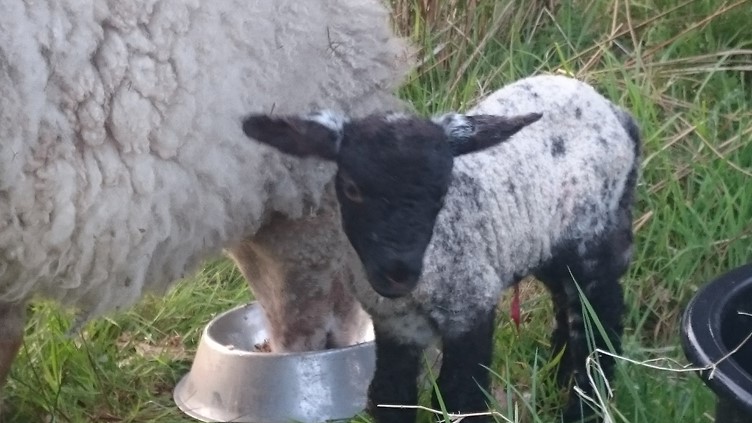
Figure 6 Mum has something to eat after the birth
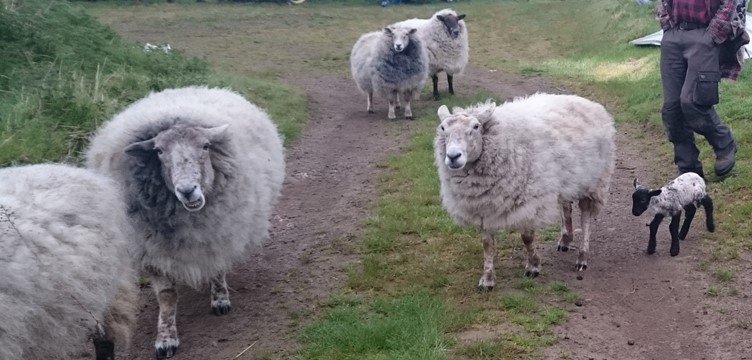
Figure 7 Sadbh meets the sheep people at Eden
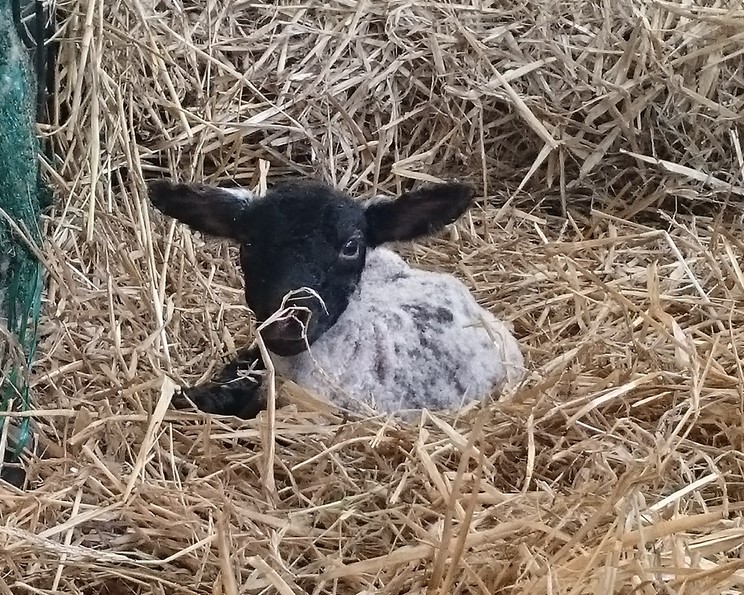
Figure 8 For the moment Sadbh & Willow come indoors when the weather is bad and at night
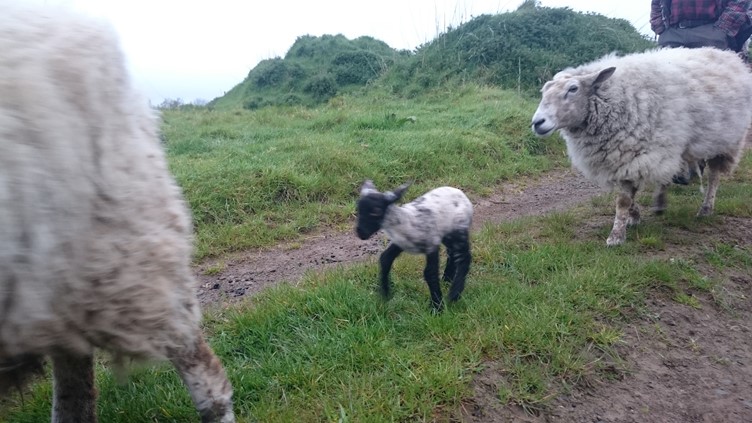
Sadbh is already keeping up with the other sheep and beginning to jump. She is falling in with her Mum’s routine and is enjoying this first week of her life exploring Eden from the secure base of her mother’s side.
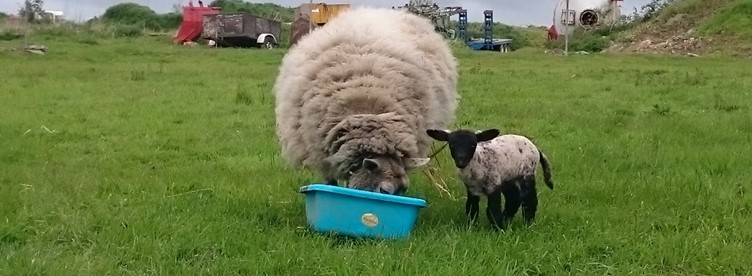 Her arrival may have been unplanned but that does not diminish her welcome presence. Already, less than a week since her birth, we have an empathic sense of the fierce adoration that Willow feels for her. That every animal feels for her child. And so let us offer this blessing for Sadbh’s life.
Her arrival may have been unplanned but that does not diminish her welcome presence. Already, less than a week since her birth, we have an empathic sense of the fierce adoration that Willow feels for her. That every animal feels for her child. And so let us offer this blessing for Sadbh’s life.
A Beannacht for Sadbh
On the day when
the weight deadens
on your shoulders
and you stumble,
may the clay dance
to balance you.
And when your eyes
freeze behind
the grey window
and the ghost of loss
gets in to you,
may a flock of colours,
indigo, red, green,
and azure blue
come to awaken in you
a meadow of delight.
When the canvas frays
in the currach of thought
and a stain of ocean
blackens beneath you,
may there come across the waters
a path of yellow moonlight
to bring you safely home.
May the nourishment of the earth be yours,
may the clarity of light be yours,
may the fluency of the ocean be yours,
may the protection of the ancestors be yours.
And so may a slow
wind work these words
of love around you,
an invisible cloak
to mind your life.
John O’Donohue
(To Bless the Space Between Us, Doubleday Press, March 2008)

